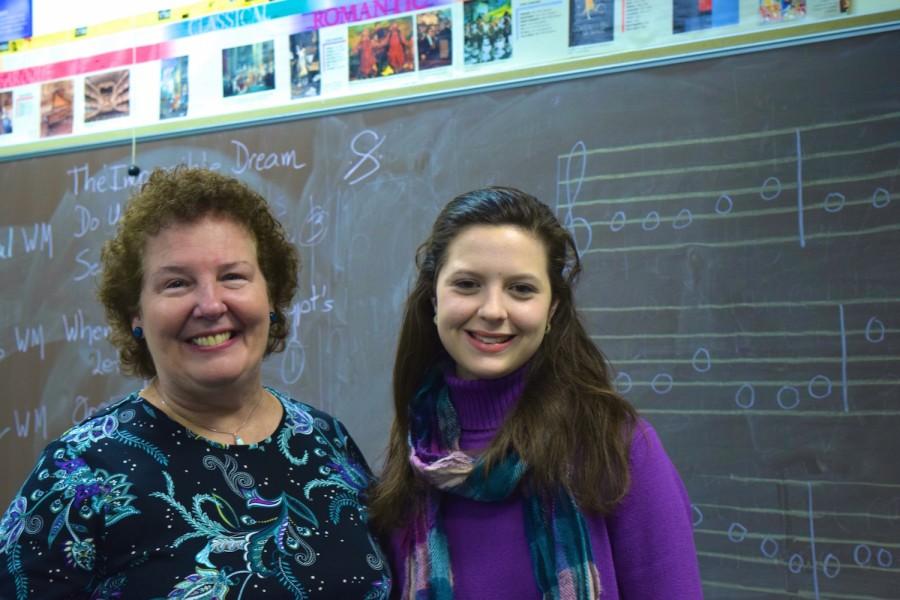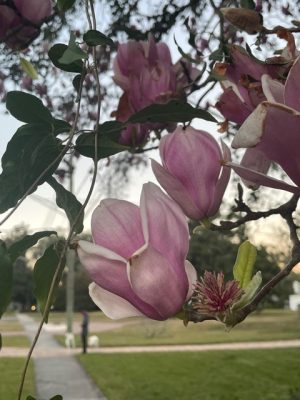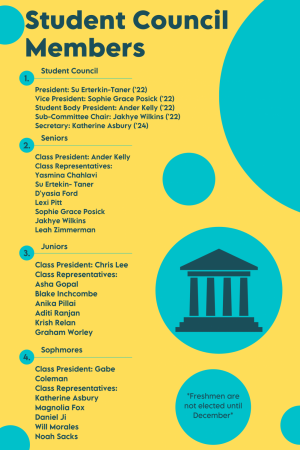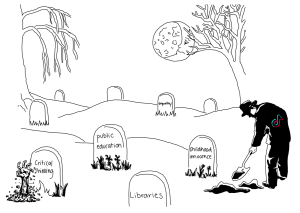Chorus Bass-ics
January 25, 2016
Do-Re-Mi-Fa-So-La-Ti-Dohhhhhhh. Often times the first thing that comes to mind when someone mentions chorus is this eight syllable melody associated with Bambi – but according to the talented teacher, Mrs. Clifton, chorus students, and the new precept from Jacksonville University, Allison McClain, chorus involves much more than repeating this scale.
Celebrating her 25th year teaching at Bolles, chorus director, Rachel Clifton, began playing piano at the age of five, later earning a college major in music. She has taught extensively at the collegiate level, and has even composed a main-stage musical for Jacksonville University.
According to Clifton, chorus involves many elements of music, “including ear-training, sight-singing, sectional rehearsals, and concerts on and off campus.”
Rehearsing for 45 minutes each day, Clifton states that the women’s and men’s chorus “require two very different approaches.”
“The women often have sung in musical groups before, and get a very resonant and beautiful sound” said Clifton.
She referred to the men’s group as “having great variety and camaraderie.”
Dedicating her life to music, Clifton describes her experience with chorus as “life-changing, creative, and rewarding.”
Along with the long-time Clifton, there is a new face on campus with mad musical talent. Allison McClain, a musical education student at Jacksonville University, has become a part of the Bolles arts community for second semester, taking time to both learn from Mrs. Clifton, and assist with the women’s and men’s chorus here on campus.
McClain will be working with the Bolles Women’s Chorus, Bolles Men’s Chorus, and the Intermediate and Sixth Grade Chorus at Bartram through the second week in March.
In her time here, Clifton will be guiding her in working with the singers, and making suggestions for repertoire, warm-up exercises, and ear-training exercises for each chorus.
McClain has been involved in music since she began to talk, stating, “I grew up being sung to by my mom and my Nana, and always participated in choirs at school and church.”
According to McClain, her life has been so positively impacted by music and her teachers, that she wants to pass what she has learned on to others.
Describing her experience so far with chorus as “energizing, inviting, and inspiring”, McClain said that there have been a few surprises. Notably, she expected “excellent and enjoyable music from each group, but never expected the Upper School Men’s Chorus to know the words to a Taylor Swift song just as well as the women.”
Women’s Chorus student, Hannah Lee (’18), has loved having McClain in class and looks forward to learning more from her. Lee said that she “is really sweet, and brings new and creative ideas to chorus warm-ups!”
Natasha Pillai (’17) likes having McClain present in class, as she “brings different experiences to her teaching and is very encouraging.”
From alto to soprano, students and teachers involved in chorus love what they do musically, and continue to prove this in their relentless passion and dedication to the arts, along with their beautiful concerts.
And to answer your stabbing question – the Bolles chorus sings what they call solfege (pronounced soul-fedge) “do-re-mi-fa-so-la-ti-doh” every class period to identify pitch. Solfege is defined as the study of singing and musicianship using solmization symbols, which are various hand movements.
Next on their lineup is the Upper School Chorus Spring Concert planned for the evening of April 21st.







